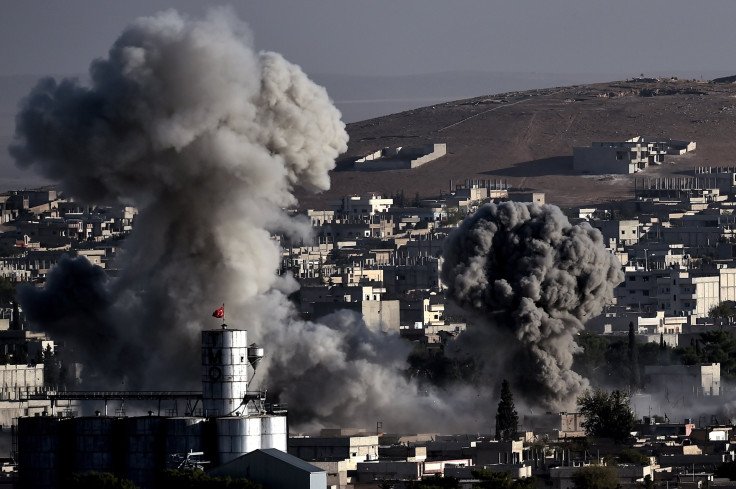Syrian-Turkish Buffer Zone Could Save Kobani From ISIS, But Anger Syrian Regime

As fighting continues between Kurdish fighters and the Islamic State group in the Syrian border town of Kobani, Turkish military involvement now appears to hinge on the creation of a buffer zone along the border. The zone, which Turkey has wanted for decades, goes way beyond the sort of involvement President Barack Obama envisioned when he began air strikes in the country in early August.
However, the creation of such an area, similar to the demilitarized zone between North and South Korea, now appears to be a crucial proponent in the fight against ISIS, despite its geo-political implications.
"If Syrian citizens can return to Syria and be protected in an area across the border, there's a lot that would commend that,” said U.S. Secretary of State John Kerry in a Wednesday statement. “You'd have to guarantee safety, that there wouldn't be attacks by the government ... so it needs a thorough examination. We're all in favor of looking at this very closely."
The statement comes as U.S. airstrikes on the town intensify in the face of major gains by ISIS, but according to reports, the strikes have only slowed the terrorist group and the town is still expected to fall imminently. Should the town be taken, the United Nations are expecting a massacre as the remaining population, including thousands of Kurdish fighters, are killed.
The idea for a buffer zone would require Syrian air defense systems to be disabled, a no-fly zone implemented and an increase in combat patrols. But more crucially, it would place the U.S. in direct confrontation with Syrian president Bashar Assad, potentially bringing further strain to a region that is already struggling to contain the ISIS threat.
But more than just a safe area for Syrian refugees, some see the buffer zone as having the potential to become a fledgling rebel state where Kurdish fighters could be trained in safe confines before crossing back into Turkey or Syria.
“It would mainly be a place where an alternate government structure would take root and for the training of rebels,” said Frederic C. Hof, a former American envoy to the Syrian opposition, in a Thursday New York Times report.
Jen Psaki, a U.S. State Department spokeswoman, said on Thursday that an American envoy, including Gen. John R. Allen and deputy special envoy Brett H. McGurk, are in Ankara to meet with Turkish officials. She said that trip “emphasized that urgent steps are immediately required to degrade ISIL’s military capabilities and ongoing ability to threaten the region.”
© Copyright IBTimes 2024. All rights reserved.






















